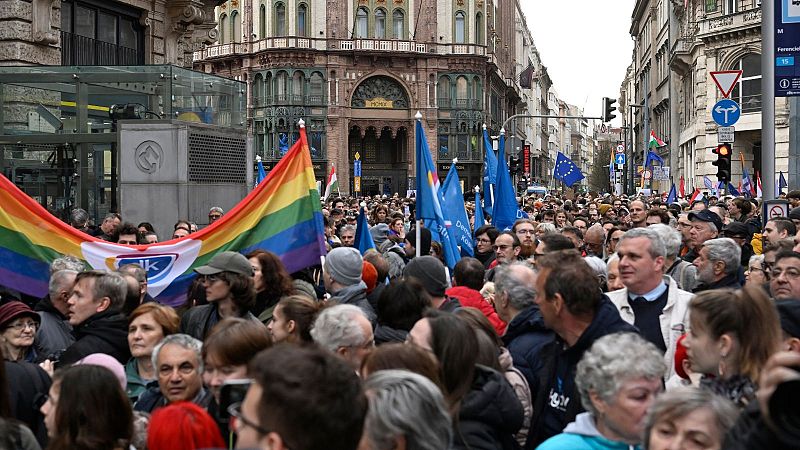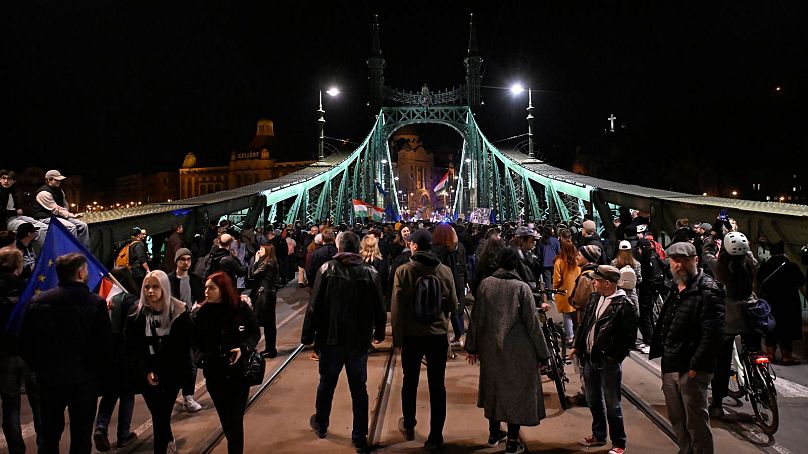
Thousands of protesters gathered in Hungary’s capital for the fourth consecutive week on Tuesday, voicing opposition to a new law enacted by populist Prime Minister Viktor Orbán's nationalist government, which bans LGBTQ+ Pride events.
The legislation, fast-tracked through parliament in March, prohibits events that depict homosexuality for individuals under the age of 18. This move comes amid growing accusations that Orbán's government is undermining democracy ahead of the national elections next year.
The law makes it illegal to organise or attend events like Pride, which legal experts and human rights groups argue is a direct attack on Hungary’s LGBTQ+ community and an unjust restriction on the right to assemble.
Authorities may also use facial recognition technology to identify individuals attending banned events, like the popular Budapest Pride, which attracts tens of thousands of people each year. Offenders could face fines of up to 200,000 Hungarian forints (€490).
Demonstrators filled the Erzsébet Bridge over the Danube River, demanding the law be repealed. Some protestors planned to stay on the bridge overnight, and there were reports of plans to block all five central Danube bridges. No violence was reported during the protest.

Viktória Vajda, one of the protestors, emphasised that efforts to engage with Orbán’s government had failed. "If we don’t stand up for the rights of minorities and our own fundamental rights, then who will when they come for us?" she said. “We’ve reached the point where we have to stand up and say, ‘No more.’”
Protestors have defied police orders to disperse from Budapest's bridges and main roads. In a rare instance of protest outside the capital, several hundred demonstrators in Miskolc, a city in eastern Hungary, also took to the streets on Tuesday in opposition to the law.
The government has defended the law, claiming it is protecting children from "sexual propaganda." However, with Orbán’s party struggling in the polls, critics argue that the law is part of a broader strategy to scapegoat sexual minorities and rally his conservative base.







